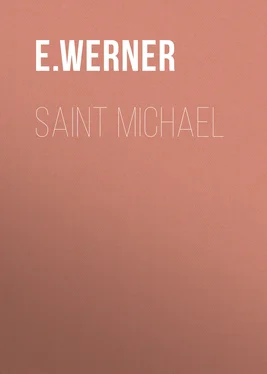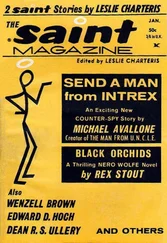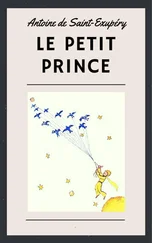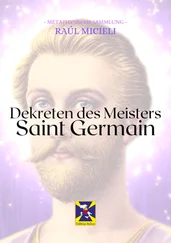E. Werner - Saint Michael
Здесь есть возможность читать онлайн «E. Werner - Saint Michael» — ознакомительный отрывок электронной книги совершенно бесплатно, а после прочтения отрывка купить полную версию. В некоторых случаях можно слушать аудио, скачать через торрент в формате fb2 и присутствует краткое содержание. Жанр: foreign_prose, foreign_antique, на английском языке. Описание произведения, (предисловие) а так же отзывы посетителей доступны на портале библиотеки ЛибКат.
- Название:Saint Michael
- Автор:
- Жанр:
- Год:неизвестен
- ISBN:нет данных
- Рейтинг книги:3 / 5. Голосов: 1
-
Избранное:Добавить в избранное
- Отзывы:
-
Ваша оценка:
- 60
- 1
- 2
- 3
- 4
- 5
Saint Michael: краткое содержание, описание и аннотация
Предлагаем к чтению аннотацию, описание, краткое содержание или предисловие (зависит от того, что написал сам автор книги «Saint Michael»). Если вы не нашли необходимую информацию о книге — напишите в комментариях, мы постараемся отыскать её.
Saint Michael — читать онлайн ознакомительный отрывок
Ниже представлен текст книги, разбитый по страницам. Система сохранения места последней прочитанной страницы, позволяет с удобством читать онлайн бесплатно книгу «Saint Michael», без необходимости каждый раз заново искать на чём Вы остановились. Поставьте закладку, и сможете в любой момент перейти на страницу, на которой закончили чтение.
Интервал:
Закладка:
"I am glad, at all events, that there is to be no more secrecy," said the young officer, discontentedly, as he withdrew into the recess of a window. "I promised you to be silent, but it was very hard for me; harder than for you."
"Bah! I did not know what else to do. And you soldiers admit that all's fair in war. Hush! here he comes! Now for the assault!"
The Professor re-entered the room, and took his seat comfortably in an arm-chair, beckoning his son to take his place beside him. "You certainly have been in good hands," he began. "My colleague, Bauer, is an authority in his specialty, and shares my views entirely. That was the reason why I yielded to your earnest entreaty and sent you for two years to B–. I was afraid that the chief attraction for you lay in the gay student life there, but I nevertheless judged it best that you should pursue your studies under other guidance than my own, after I had laid the foundation for them. Now let me hear."
The young man was evidently made very uncomfortable by this prelude; he twirled his handsome moustache, and stammered somewhat as he replied, "Yes,–Professor Bauer; I attended his lectures–very regularly."
"Of course; I recommended you to him particularly."
"But I did not learn anything from him."
Wehlau frowned, and said, reprovingly, "Hans, it is very unbecoming so to criticise a worthy man of science. His delivery, to be sure, leaves much to be desired, but his treatises are admirable."
"Good heavens, I am not speaking of the Herr Professor's treatises, but of my own, and they were unfortunately far from admirable. I felt that myself, and accordingly I made a slight change in my course of study."
"Against my express directions. I laid out your course precisely for you. To whom did you go, then?"
Hans hesitated to reply, and glanced towards the window where his 'reserves' were stationed, before he said, in a rather constrained voice, "To–to Professor Walter."
"Walter? Who is he? I do not know the name."
"Oh, papa, you surely must have heard of Friedrich Walter. He has a world-wide reputation as an artist."
"As a what?" the Professor asked, not crediting his ears.
"As an artist, and that was the reason why I wanted to go to B–. Master Walter lives there, and did me the honour of receiving me into his atelier. In fact, I have not applied myself to the study of natural science; I have become a painter!"
It was out at last. Wehlau sprang to his feet, and stared speechless at his son.
"Boy, are you mad?" he cried; but Hans, who knew well that his only hope lay in not allowing his father to speak, rattled on very quickly, "I have been very diligent all these two years, extremely diligent. My teacher will tell you so; he thinks I may safely be left to myself now, and when I came away he said to me, 'It will surely delight your father to see the progress you have made; refer any one to me.'"
All this was uttered with extreme volubility; the words fell like honey from his lips, but it did him no good any longer; at last the Professor understood that there was no jest about the 'slight change' of studies, and he burst forth, "And you dare to brave me thus! You dare secretly, behind my back, to play such a farce; to defy my command, to laugh my wishes to scorn; and now you imagine that I shall yield in the matter, and say 'yes,' and 'amen'? You will find yourself vastly mistaken."
Hans hung his head and looked crushed. "Do not be so hard upon me, papa! Art is my ideal, the poesy of my life, and if you knew how my conscience has pricked me for my disobedience!"
"You look as if your conscience pricked you," the Professor stormed, still more furious. "Ideal,–Poesy,–the same cursed old trash! The shibboleth to hide all the folly that men perpetrate. Never imagine that such nonsense will go down with me. Whatever pranks you may have played hitherto, now you are coming home, and I shall take you in hand. You will shortly pass the examination for your degree! Do you hear? I order you to do so."
"But I have not learned anything," Hans declared, with positive exultation. "While the lectures were going on I sketched or caricatured either the professors or the audience, as the case might be, and all that you taught me I forgot long ago; I could not write an essay a page long, and you cannot send me to the university again."
"You are actually boasting of your ignorance," said Wehlau, sternly; "and the inconceivable deception you have practised upon me you perhaps consider another piece of heroism to be proud of."
"No; only as a necessary weapon, when all other means failed. How I formerly implored and entreated you to yield to my desires, and all in vain! You would have had me sacrifice my talent, my entire future, to a profession for which I was not fitted, and in which I never could have excelled. You denied me the means for my artistic education and thought thereby to force my inclination. When I said to you, 'I want to be a painter,' you met me with an inexorable 'no.' Now I say to you, 'I am a painter,' and you will have to say 'yes.'"
"That remains to be seen," Wehlau burst forth afresh. "I will see whether I cannot govern my own son. I am master in my own house, and I'll have no rebellion there; those who oppose me will have to leave it."
The young man's cheek paled at this threat; he stepped up close to his father, and his voice sounded imploring, but gravely in earnest. "Father, do not let matters go too far between you and me. I am not made as you are. I have always had a horror of your cold lofty science that makes life so clear and so–desolate. You do not comprehend that there is another world, and that there is a temperament to which this other world is as necessary as the air to the lungs. You wring from nature her secrets; everything that lives and moves must be adjusted to your rules and theories; you know the origin and end of every created being. But you do not know your own son, whom you cannot fit to your theories. He has clasped close his morsel of poesy and ideality, and has pursued his own path, in which he will never disgrace you."
With this he turned and walked towards the door; but the Professor, who was in no wise disposed to end the interview thus, called angrily after him, "Stay, Hans! Come back this instant!"
But Hans thought fit not to hear the call, he saw that his corps de réserve was advancing, and he left it to Michael to cover his retreat as best he might.
"Let him go, uncle," said Michael, who had come forward some minutes before, and now attempted to soothe the angry man. "You are too irritated; you must be calmer before you speak to him again."
The admonition was vain. Wehlau had no idea of becoming calmer, and since his disobedient son was no longer present, he turned upon his advocate. "And you too have been in the plot; you knew it all; do not deny it. Hans tells you everything; why did you keep silence?"
"Because I had given my word, and could not break it, however I might dislike secrecy."
"Then you ought to have taken the boy in hand yourself and brought him to reason."
"That I could not do, for he is right."
"What! Are you beginning too?" shouted the Professor, shaking a menacing finger; but Michael held his ground and repeated firmly, "Yes, uncle, perfectly right. I never would have allowed myself to be forced to adopt a calling which I disliked and for which I was not fit. I should, it is true, have waged more open and therefore sterner warfare than Hans has done; he has simply avoided a struggle. From the day when you forced him to the course of study you approved, and to which he ostensibly applied himself, he began to make a preliminary study of painting, but he finally perceived the impossibility of completing his artistic education beneath your eyes, and therefore he went to B–. He must have done extremely well there, for if a man like Professor Walter testifies to his artistic ability, it is indubitable, you may be sure."
Читать дальшеИнтервал:
Закладка:
Похожие книги на «Saint Michael»
Представляем Вашему вниманию похожие книги на «Saint Michael» списком для выбора. Мы отобрали схожую по названию и смыслу литературу в надежде предоставить читателям больше вариантов отыскать новые, интересные, ещё непрочитанные произведения.
Обсуждение, отзывы о книге «Saint Michael» и просто собственные мнения читателей. Оставьте ваши комментарии, напишите, что Вы думаете о произведении, его смысле или главных героях. Укажите что конкретно понравилось, а что нет, и почему Вы так считаете.












